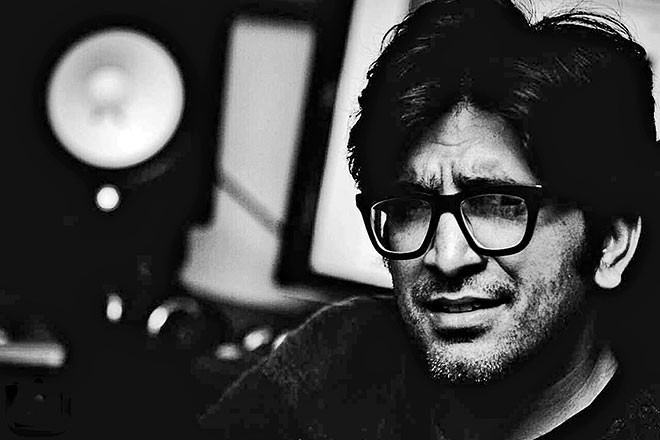

Book Review
In this concluding part, Instep looks at the story of musician, poet and Coke Studio 11 co-producer Ali Hamza, who is featured as one of the voices in Song of the Dervish: Nizamuddin Auliya: The Saint of Hope and Tolerance by Meher Murshed.
Years before Coke Studio came into existence, Noori had released their second album, Peeli Patti Aur Raja Jaani Ki Gol Dunya and were scheduled to play shows – as is the norm. But as Ali Hamza recounts in Song of the Dervish: Nizamuddin Auliya: The Saint of Hope and Tolerance to author Meher Murshed, his grandfather, Reza Kazim’s words echoed in his head - that music is more than just about entertainment - and instead of going to Canada as Noori, Hamza, in December 2016, went off to Multan, leaving behind his ID cards.
He tells Murshed: "I was the protected and pampered younger brother - I wasn’t willing to accept the norm."
Sleeping on a charpai in a hotel in Multan, Hamza’s struggle within and without continued. His grandfather’s words echoed in his head. "What’s the next stage of the human journey?"
Even as his family started looking for him, Hamza – despite not knowing where he was going – just knew he had to leave and ended up in Quetta and Deira Ghazi Khan.
Hamza called his family and did come home eventually and Noori did go on.
Through this book, we learn a lot more about the two very different brothers who form a band that still has screaming fans. And it has to be said that Ali Hamza, interviewed for this book, speaks with complete honesty.
Music echoed in his house throughout childhood. But as Hamza reminisces, "I had a problem. I would go into the garden and talk to myself. At a certain stage in my early childhood, I was aware of who were Hindus, Muslims and Christians."
He adds: "But then I would sit alone in the servants’ quarters, and most were Christians. As I grew older I realized I didn’t take religion seriously. Being brought up in a certain sector gave us freedom. I was naturally sensitive to people’s vibes rather than their words. I was too caring."
It would be unfair to give away the whole conversation Hamza has with the author but suffice to say that his solo direction makes a lot more sense if you’ve read this book. Why? Because it explains that the brothers’ solo journeys were long time in the making. It had to arrive.
Noor was always the musical genius with a fondness for rock while Hamza was and still has a folk-earthy vibe and is the poet in the band. The book features a great deal on the journey Hamza and Ali Noor as Noori were bound to take – when several years later Coke Studio arrived.
And Hamza’s mystic, folky side met Saeen Zahoor (also featured in great depth), which led to the birth of the still iconic ‘Aik Alif’ featuring Noori and Saeen Zahoor in the show’s second season.
The book goes into extensive detail on how the song was born, including how Hamza spent time with Saeen Zahoor who was the one to suggest that it should be recorded.
Rohail Hyatt, the man who started Coke Studio and states that he is spiritual but not religious, is quoted in the book, saying: "I felt the Divine as we played ‘Hor Vi Neevan Ho’ (originally by Hamid Ali Bela) and ‘Aik Alif’. I surrendered."
The book also covers in great deal the birth of Qawwali, Ali Noor and Ali Hamza’s journey as a band, Hamza’s yearnings within that took him places as well as the origin story of Coke Studio. It isn’t about the series itself but the Sufi ideas that gave birth to it in the first place.
As the author notes: "What do Tahir Qawwal, Saeen Zahoor, Hamza and Ali Noor have in common with Nizamuddin and Amir Khusro? Music - therein lies the Divine."
- Pick up a copy of the book today.